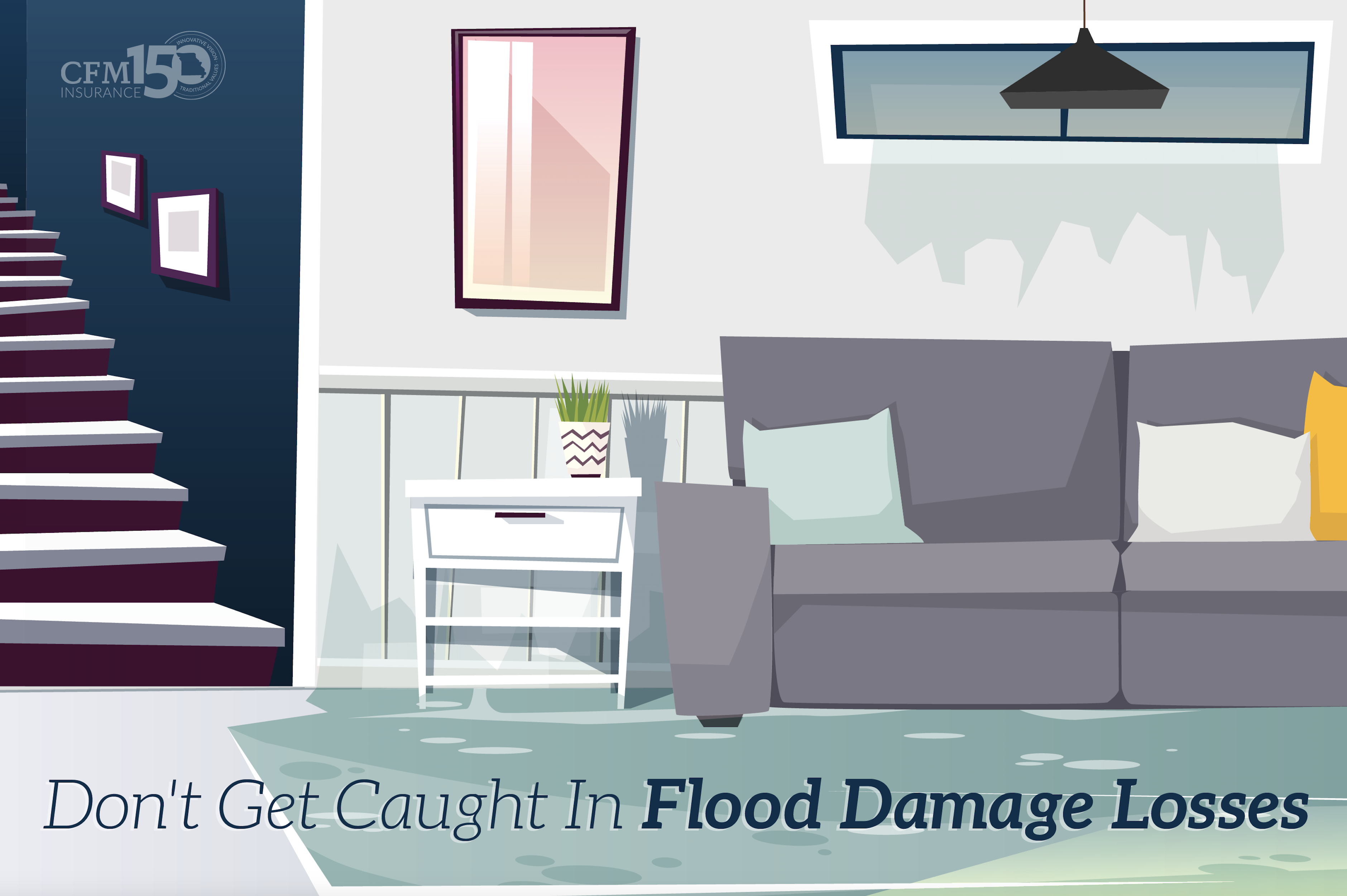
Fact: Flood is the number one most frequently occurring natural disaster in the United States, and the most costly, according to the Federal Emergency Management Agency (FEMA).
This probably comes as no surprise, given the flooding disasters that have taken place this spring here at home in the Midwest. But flooding events affect every part of the country, and uninsured homeowners in low-to-moderate risk areas are often unprotected against severe losses, leaving them with expensive out-of-pocket repair costs.
While there is flood insurance available to homeowners through the government-run National Flood Insurance Program (NFIP), it aims to cover high-risk areas that require flood insurance by law. For inland residents outside of these areas, coverage is "optional." But because of high limits, surcharges, and exclusions that come with that coverage, the enrollment rate is only 1% in low-to-moderate risk areas. This doesn't stop floods from hitting these areas; in fact, 20% of NFIP flood claims come from low-to-moderate risk areas, with an average claim of $27,000.
If you're an inland resident, you now have a more affordable coverage alternative to NFIP insurance. Designed specifically for residents in low-to-moderate risk areas, our Inland Flood Coverage endorsement can add affordable flood coverage to existing Homeowner, Farmowner, Fire and Extended Coverage policies. This insurance covers the most common exposures residents face from an inland flood, including personal property, basement exposures, and appliances.
Important Disclaimer: This endorsement does not satisfy mandatory flood insurance coverage should it be required by your federally regulated lender for your home mortgage or loan. This endorsement is ideal for properties with a basement (finished and unfinished) or crawlspace foundation.
Take a closer look at this beneficial endorsement and see if it might be the right option for your property.
What is an inland flood described as under this coverage?
Inland flood means a general and temporary condition of partial or complete inundation of normally dry land area resulting from:
1. Overflow of inland waters.
2. An unusual or rapid accumulation or runoff of surface waters from any source including but not limited to rainfall and ice melt.
3. Mudflow - When it comes to determining mudslide (not covered) vs. mudflow (covered), think 'cake vs. shake'. A mudslide is solid, like a cake. Whereas, a mudflow is liquid, like a shake.
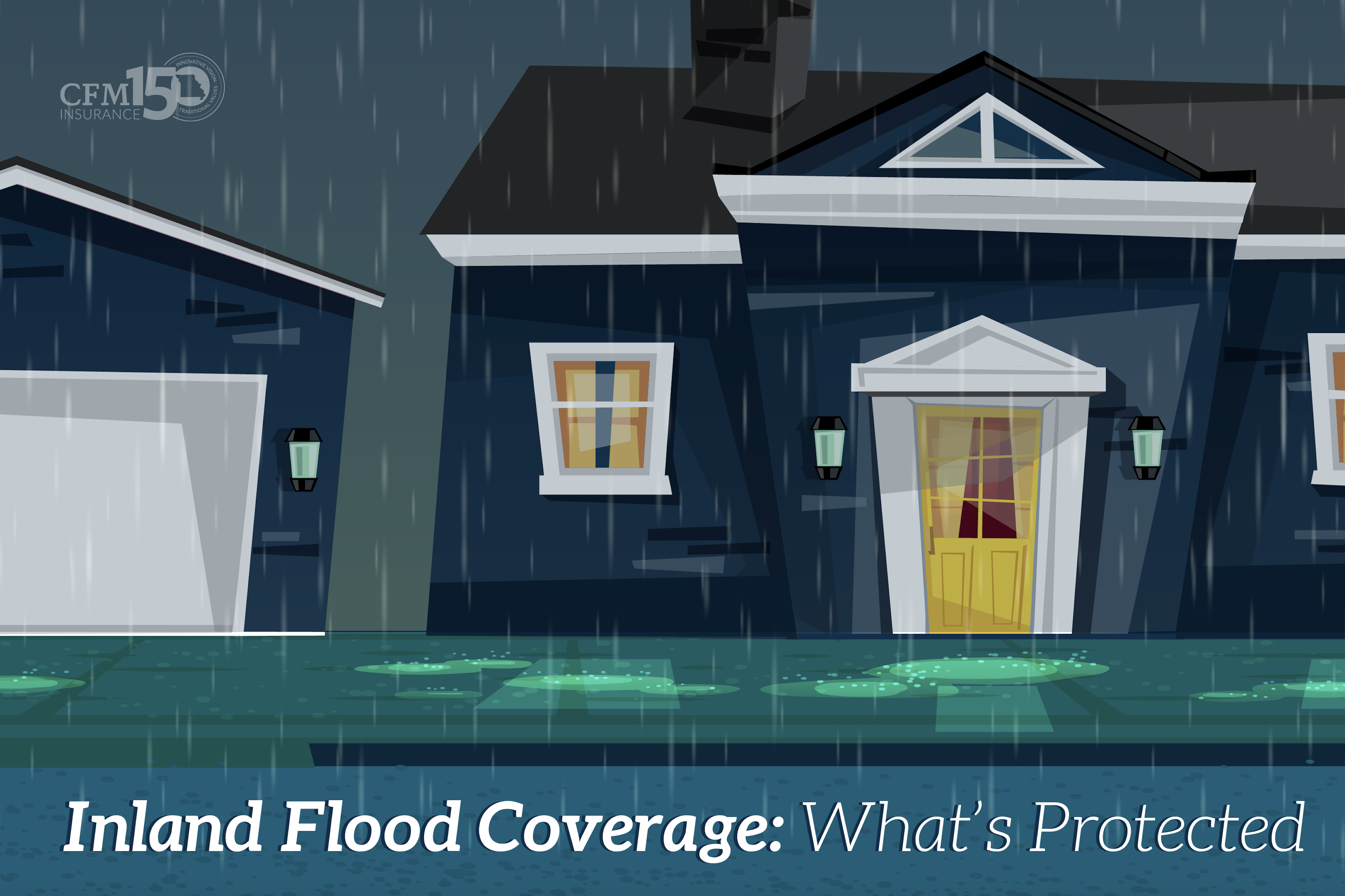 Inland Flood Coverage includes:
Inland Flood Coverage includes:
- Damage to your residence, specifically your basement/low-grade portion of your home, and certain other structures on your property, like a shed or pool house.
- Damage to your personal property, including in a basement or sunken room (The NFIP excludes coverage for basement personal property.)
- Loss of Use, which provides reimbursement for additional living expenses accrued while you're away from your uninhabitable home, and lost rental income (The NFIP excludes coverage for Loss of Use.)
- Property removed to safety up to 30 days after a flooding event.
- Debris removal at your property after a covered flooding event has caused damage.
Inland Flood Coverage excludes:
- Damage to personal property not inside your home, like patio furniture or a barbecue grill.
- Damage to your deck or fence.
- Damage to your lawn, trees, or landscaping.
- Damage from earth movement or seepage from the water table rising with no flooding near the house.
- Sump pump discharge or overflow, or backup of sewers or drains, unless caused by the covered flooding event.
Pro Tip: Make sure you have an adequate amount of Water/Sewer Backup Coverage on your policy to match the amount of Inland Flood Coverage you place on your policy, so you don't end up underinsured in the event of a claim.
Helpful examples to consider:
To give you a better picture of when you might be extremely thankful for this coverage, consider these real-life flood loss scenarios:
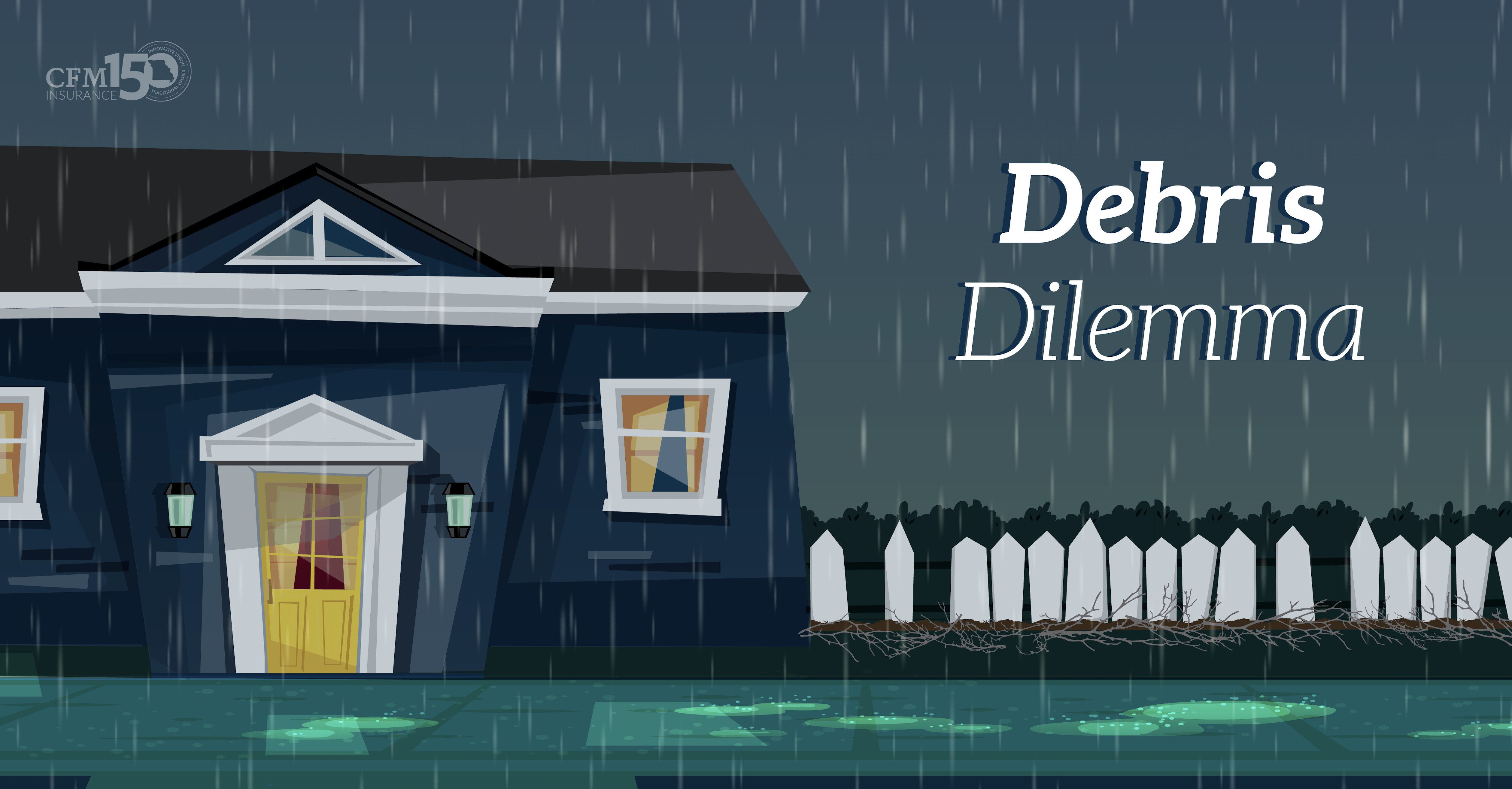 An area flooding event carried debris (large amounts of brush from the wooded area near your home) onto your property and damaged your fence, but did not damage your residence. While your fence would be excluded from Inland Flood Coverage, the debris removal would be covered under this endorsement.
An area flooding event carried debris (large amounts of brush from the wooded area near your home) onto your property and damaged your fence, but did not damage your residence. While your fence would be excluded from Inland Flood Coverage, the debris removal would be covered under this endorsement.
Pro Tip: Just because the Inland Flood endorsement wouldn't cover your fence doesn't mean your homeowners insurance policy wouldn't cover it. Filing a separate claim against your homeowners policy in this scenario would be acceptable to potentially recover the cost of the fence damage.
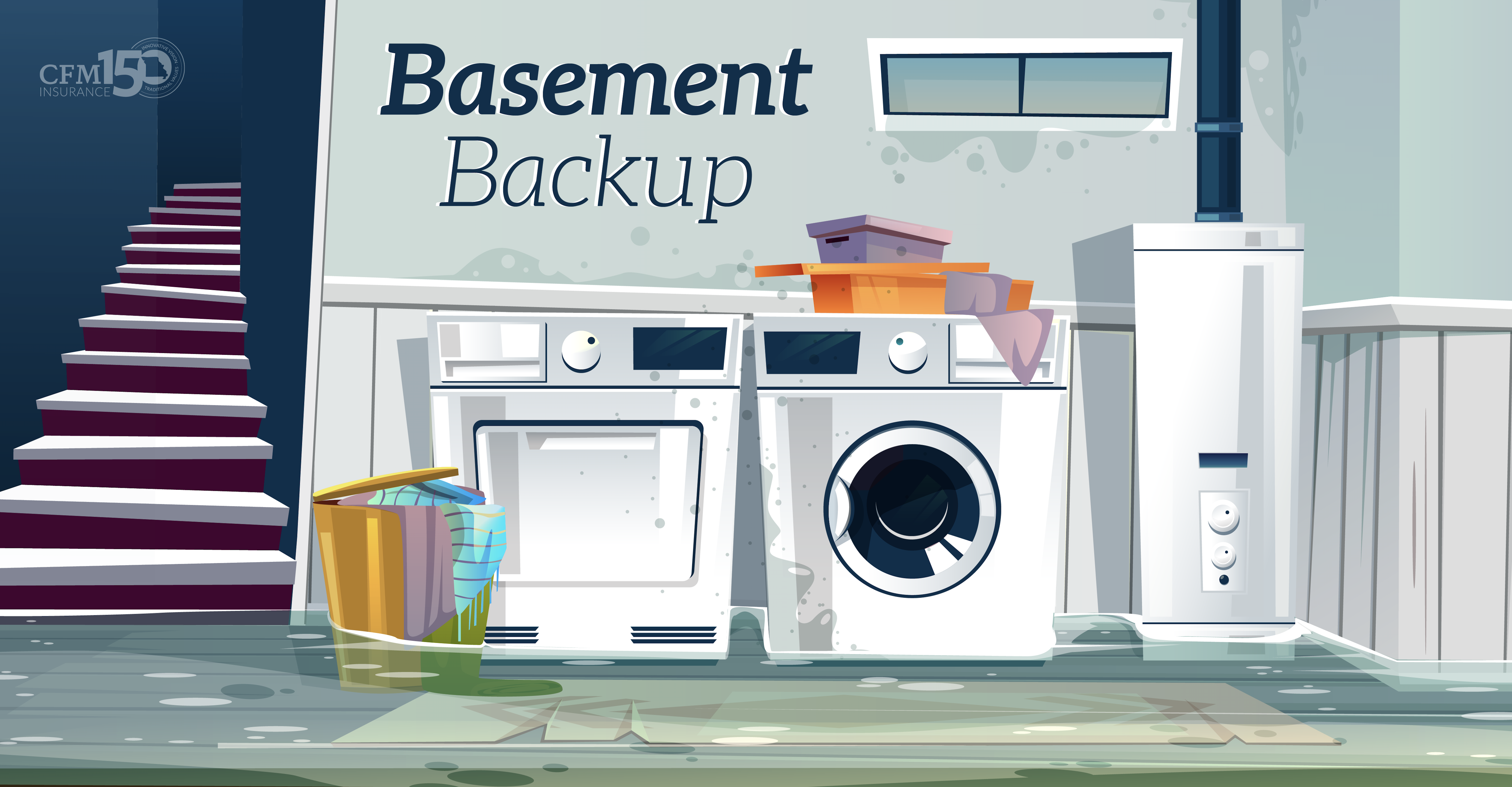 An area flooding event caused water to fill your basement and damage your electric water tank, washer/dryer, interior basement walls, and basement steps. Under the Inland Flood endorsement on your homeowners policy, the cost to repair/replace the damaged items would be covered.
An area flooding event caused water to fill your basement and damage your electric water tank, washer/dryer, interior basement walls, and basement steps. Under the Inland Flood endorsement on your homeowners policy, the cost to repair/replace the damaged items would be covered. 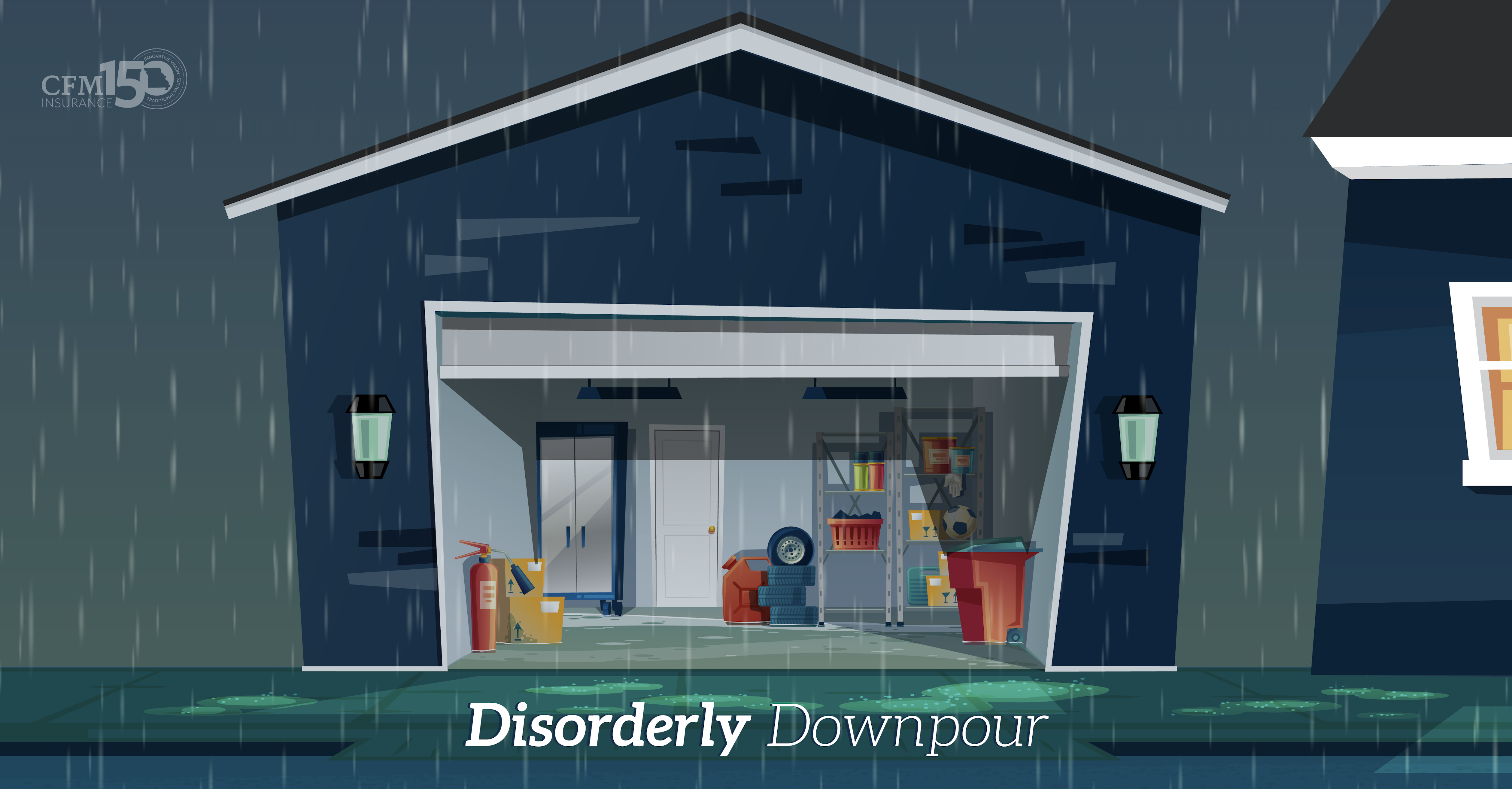
Heavy rainfall over several days caused water to enter your basement and back up through the basement drain. It eventually made its way into your garage. The flooding/water damage to your home's basement, garage, and the personal property stored in both would be covered under the Inland Flood endorsement.
How much Inland Flood Coverage do you need?
Through CFM, you can purchase Inland Flood Coverage in the following amounts with a low $500 deductible:
- $5,000
- $10,000
- $25,000
Pro Tip: When it comes to determining the right amount of Inland Flood Coverage for your property, we recommend visiting with an experienced, local agent to go over your current insurance policy's coverage limits and overall eligibility for the program. That way, you'll know for sure whether your property is a preferred fit or not.
Are you eligible for Inland Flood Coverage?
To be eligible for Inland Flood Coverage, your property must meet several [underwriting] requirements. Here are some examples of eligibility factors and disqualifiers for this coverage:
- Property locations in all FEMA Flood Zones, except those beginning with prefix A or V (high-risk zones), are eligible. Locations within 25 meters of a FEMA Flood Zone beginning with a prefix A or V are ineligible.
- Policyholders with residence premises located in surge exposed areas that are subject to abnormally high water levels generated by severe storms (category 1-5) are ineligible for coverage.
- Properties that have had a flood loss in the past five years are ineligible for coverage.
What is the cost of peace of mind?
Instead of potentially spending thousands out-of-pocket repairing your home's basement in the event of a flood, consider investing in this valuable coverage, which starts at only $30 per year. If you're ready to buy some peace of mind and add Inland Flood Coverage to your policy, contact a local CFM agent today.
CFM Insurance partners with Munich Reinsurance America, Inc. (Munich Re America) to offer Inland Flood Coverage. For more information about Munich Re, visit their website.
*All product information in this blog, including the real-life claims examples, is provided by and belongs to Munich Re America. The material in this blog is intended for informational purposes only and does not guarantee any coverage, as each claims scenario is different.
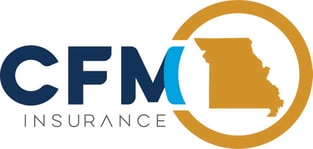


Your Comments :